Did you know that students, especially young women, are at the highest risk of sexual assault during the first few months of college? This “red zone”–roughly from the beginning of the school year until Thanksgiving break–is especially unfortunate because many new freshmen are not yet aware of the resources available to survivors or of the options they have in reporting sexual assault.
With most of the nation’s colleges and universities back in session, now is the perfect time to get informed and start raising awareness about sexual assault and domestic violence on your campus. Here are four simple ways you can help make this school year a safe one–for everyone.
1) Find out who your school’s Title IX Coordinator is.
Title IX is an awesome bit of legislation that prohibits any educational institution receiving federal funding (including student loans) from discriminating against anyone on the basis of sex. Under Title IX, schools are legally mandated to respond and remedy hostile educational environments, including environments in which sexual assault, harassment, stalking, and dating violence take place. Every school must appoint a Title IX Coordinator to ensure that the school is compliant with Title IX and to coordinate the investigation and disciplinary process of sexual assault and violence complaints. Your school’s Title IX Coordinator can answer questions you have about these issues on campus, and fill you in on steps the school is taking to ensure safety for all students. To find out more about Title IX and the Clery Act (another good piece of campus safety legislation you should know about), visit KnowYourIX.org.
2) Learn about your campus resources.
Many colleges and universities have their own rape crisis hotlines, counseling centers, and other resources available to survivors of sexual assault and dating violence. These centers and hotlines often act as hubs of information where you can find out about other local, off-campus, resources. Most of this information will be available on your school’s website, but when in doubt, ask your RA or academic advisor.
3) Get involved with campus groups.
There are so many groups working to combat issues of sexual assault and dating violence on campus. Join them. Not only do these groups do amazing work, but their members are usually extremely smart, dedicated, and involved campus leaders. Not a bad group of people to get to know. Attend your school’s activity fair to learn about groups on your campus and check out these national organizations
SAFER: Students Active For Ending Rape On Campus
Run by a volunteer collective, SAFER facilitates student organizing through a comprehensive training manual; in-person workshops and trainings; free follow-up mentoring; our Campus Sexual Assault Policies Database; and a growing online resource library and network for student organizer
FORCE: Upsetting Rape Culture is a creative activist collaboration to upset the culture of rape and promote a culture of consent. They also created and organized The Monument Quilt, a crowd-sourced collection of thousands of stories of rape and abuse.
End Rape on Campus provides free, direct support to campus activists who are filing federal complaints, like Title IX, to the Office for Civil Rights, and/or Clery complaints in order to hold colleges and universities accountable for their handling of sexual violations.
Know Your IX fills the gap between the law on the books and survivors on the ground: they work to educate fellow students about their rights and empower them to take action for safety and equality on campus; and bring students’ voices, experiences, and concerns to policy.
It’s On Us is the White House’s initiative to address sexual assault on college campuses. Take the pledge and download the Toolkit to start organizing It’s On Us events on your campus.
4) Bring NO MORE to your campus.
Create a [your school] says NO MORE campaign. Host events throughout the year to raise awareness. Some ideas for events are below.
- Use the “Awareness Event Toolkit” located in the NO MORE tool kit. Replicate the outlined event, scale it to your needs or simply use it as a source of inspiration to raise awareness in a comfortable and accessible way. Share the the NO MORE PSAs at the event, or create your own.
- Create your own NO MORE products, t-shirts, pins for backpacks, NO MORE stickers (to put on water bottles), etc. You can order items from our online store or through NCADV’s shop (they offer discounts for bulk orders of 100 items or more), or use the image files and usage guidelines in our tool kit to make them yourself. You can share the image file along with the index and spectral data sheet (both of which are housed in the folder “usage guidelines”) with the vendor of your choice to have the NO MORE symbol branded on any product, or even it have it co-branded with another logo. Sell products to raise funds for a local domestic violence/ sexual assault organization and share helpful information about these issues.
- Host a NO MORE day and create an event on Facebook and invite friends and community members change their profile pictures to the NO MORE symbol to raise awareness or add the NO MORE symbol to their existing profile picture using the NO MORE Twibbon – a great time to a NO MORE Day is during Dating Violence Awareness month (February), Sexual Assault Awareness month (April), and Domestic Violence Awareness Month (October).
- Host a bake sale: for example, bake doughnuts and use blue frosting to mirror the NO MORE symbol and host a bake sale where the proceeds go to the local crisis center. Take photos and share on social media with the hashtag #NOMORE and tag @NOMOREorg so we can share with our network as well!
- Ask a local restaurant or movie theater to host a “NO MORE Night” or a “[your school] says NO MORE Night.” Ask them to donate a percentage of the proceeds to a local crisis center. Promote the event with fliers with the NO MORE symbol and the restaurant’s logo on it. Post fliers with statistics about how domestic violence and sexual assault are not talked about and ask people to say NO MORE silence and talk about it with their friends. Invite professors to start a conversation with their students by sharing a piece of information about domestic violence and sexual assault (statistics for women and men, places to get help, rates of under reporting, etc) at the beginning or end of class every day for a week leading up to NO MORE Day or NO MORE Night.
- Start a NO MORE Photo competition, similar to the NO MORE Week campaign and ask your school to share why they say NO MORE and submit a photo with it. Find the “I SAY NO MORE BECAUSE” poster (which is located in the Tools to Say NO MORE). Ask a local establishment to partner with you so you can provide a special discount for anyone who submits a photo (to generate more submissions) and tell students that they can show their submission to get the discount.
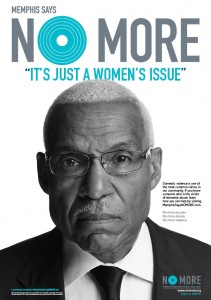
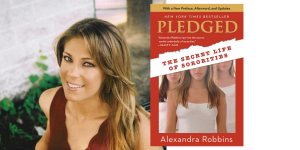 Alexandra Robbins, who has written five New York Times bestsellers, is the author of
Alexandra Robbins, who has written five New York Times bestsellers, is the author of  Perhaps the biggest blow to the Cosby team’s denial that the comedian is guilty of the mounting claims of sexual assault and rape against him is the
Perhaps the biggest blow to the Cosby team’s denial that the comedian is guilty of the mounting claims of sexual assault and rape against him is the 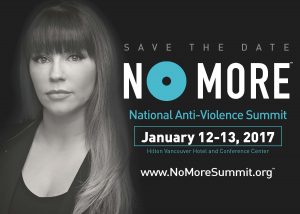


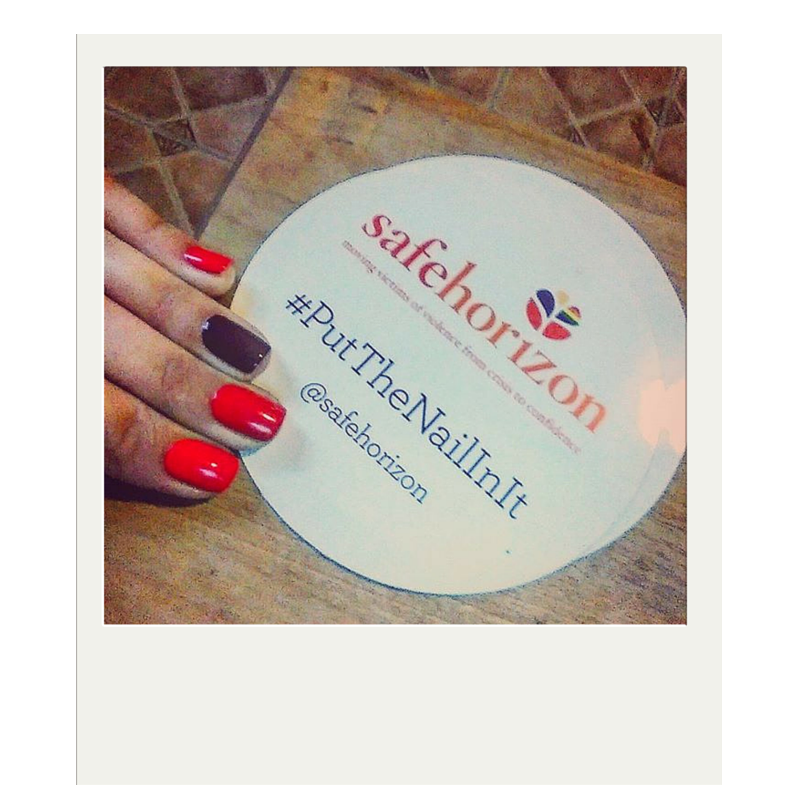 fingernails purple!
fingernails purple!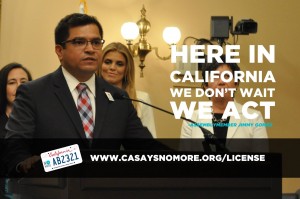 Domestic violence and sexual assault are two of the most widespread problems in our communities.
Domestic violence and sexual assault are two of the most widespread problems in our communities.

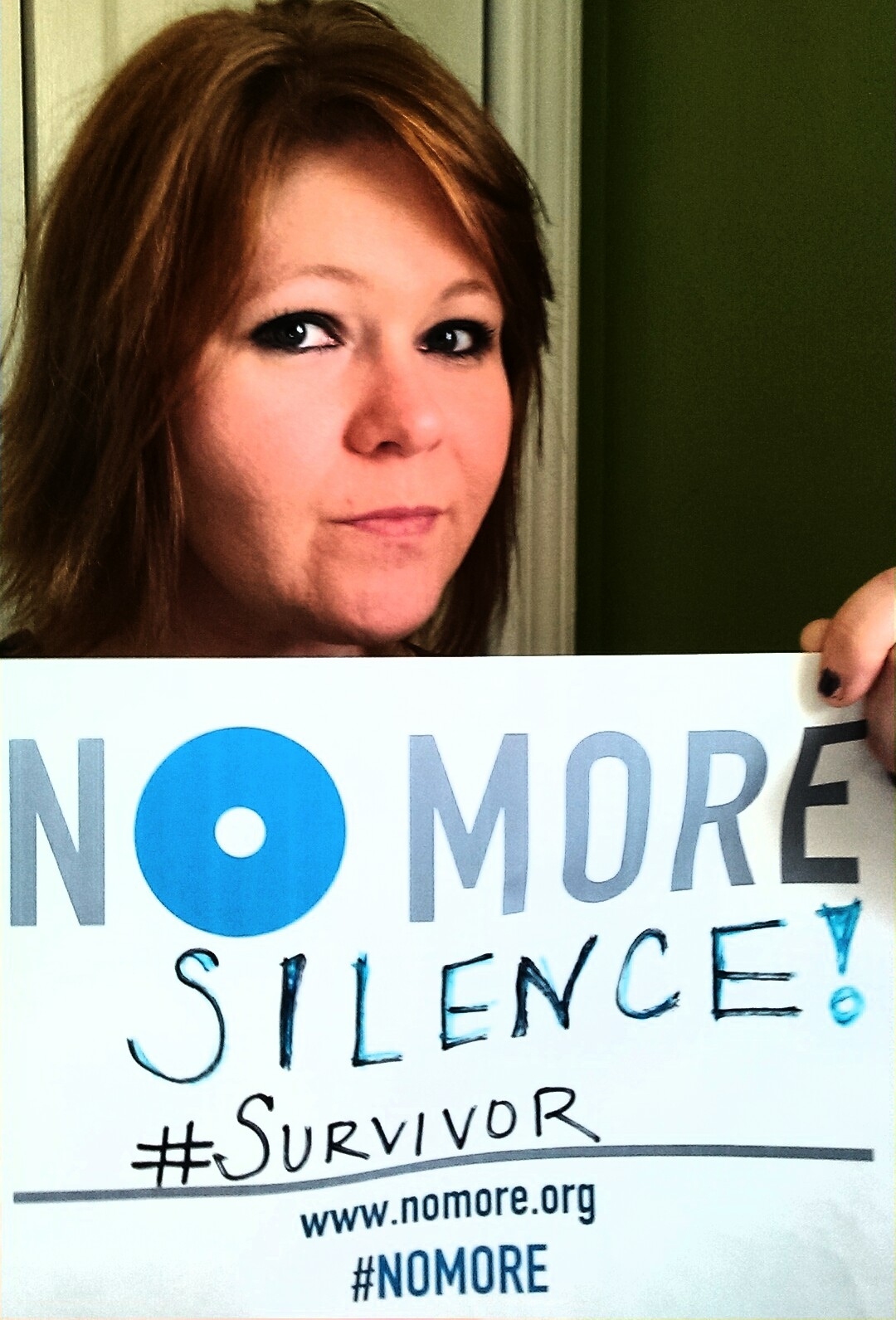 A.D. Marrow is a writer living in North Carolina. Her new novel,
A.D. Marrow is a writer living in North Carolina. Her new novel,